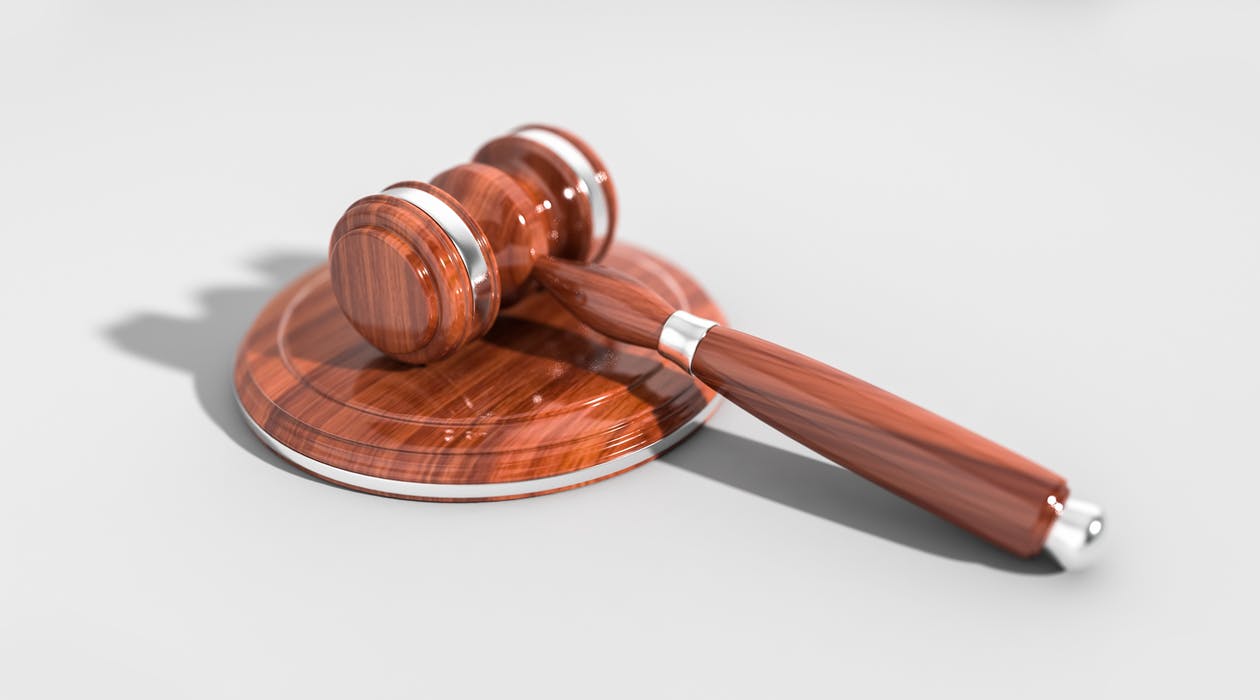It’s important to plan for your retirement, and creating an Individual Retirement Account (IRA) can be one of the best ways to do so. This financial planning tool is beneficial both to individuals and small business owners. It can also be an important part of a complete asset protection plan.
What happens when a lawsuit comes your way down the line though? Is your IRA protected from creditors? While there are some federal protections, much of the protection for IRAs varies by state. In this article, we will explore the benefits of an IRA, see what protection is available by state, and discuss your options when facing a lawsuit or other legal issue.
Using an IRA for Retirement
If you haven’t yet created an IRA, you could be missing out on some big retirement investments. Investopedia defines an IRA as an investing tool with tax advantages that individuals use to assign funding for retirement savings. Investments held in an IRA can include a range of financial products including stocks, bonds, exchange-traded funds (ETFs), and mutual funds. Approved financial institutions establish IRAs, such as banks, brokerage companies, federally insured credit unions, and savings and loan associations.
Contributions to an IRA come from earned income. Income from investments, Social Security benefits, and child support do not count as earned income. Because this money is intended for retirement, there is a 10% withdrawal penalty for deductions made before the age of 59 ½, with some allowable exceptions. Paying an income tax could also be a penalty for an early withdrawal.
Types of IRAs
Investopedia further explores the different types of IRAs. Individual taxpayers usually choose between traditional and Roth IRA options. Contributions to a traditional IRA are tax deductible. Roth IRA contributions are not tax deductible, but qualified contributions are tax-free. During retirement, withdrawals from a traditional IRA incur tax at their ordinary income tax rate, while Roth IRA withdrawals do not earn taxes.
Self-employed individuals or small business owners usually establish SEP or SIMPLE IRAs. A simplified employee pension (SEP) IRA follows the same rules for withdrawals as a traditional IRA. A savings incentive match plan for employees (SIMPLE) IRA also follows the rules for traditional IRAs, but additionally allows employees to make contributions.
Lawsuits
As you know, lawsuit can come your way at any time. So, it’s important to take precautions against this possibility early. For qualified retirement plans, the federal law provides protection through the Employee Retirement Income Security Act of 1974 (ERISA). Retirement Watch explains that this protection covers most employer plans, such as defined benefit plans and 401(k)s. This federal protection isn’t in place, however, when an ex-spouse is trying to get a share of these assets in a divorce proceeding. If your retirement account doesn’t qualify for ERISA, it doesn’t have that protection.
IRAs don’t fall under ERISA, but they do have some protection under federal bankruptcy law. A rollover IRA of any amount has some protections, as well as a contributory IRA. Up to $1 million of IRAs is protected, with adjustments for inflation.
Beyond bankruptcy, IRA asset protection by state varies for other things such as lawsuits. A number of states provide absolute protection from creditors for their residents’ IRAs, receiving the same protection of ERISA protected plans. Other states offer even less protection than ERISA provides. In the next section, we’ll explore what the state protections look like.
State by State IRA Protection Comparison
Below is a simplified state by state comparison of IRAs as exempt property from creditors, as published by The Tax Advisor. Many states may have additional special statutory provisions, which vary by state.
| State | IRA Exempt | Roth IRA Exempt |
| Alabama | Yes | Yes |
| Alaska | Yes | Yes |
| Arizona | Yes | Yes |
| Arkansas | Yes | Yes |
| California* | Partly | No |
| Colorado | Yes | Yes |
| Connecticut | Yes | Yes |
| Delaware | Yes | Yes |
| Florida | Yes | Yes |
| Georgia | Yes | No |
| Hawaii | Yes | Yes |
| Idaho | Yes | Yes |
| Illinois | Yes | Yes |
| Indiana | Yes | Yes |
| Iowa | Yes | Yes |
| Kansas | Yes | Yes |
| Kentucky** | Yes | Yes |
| Louisiana | Yes | Yes |
| Maine | Partly | No |
| Maryland | Yes | Yes |
| Massachusetts | Yes | Yes |
| Michigan** | Yes | Yes |
| Minnesota | Yes | Yes |
| Mississippi | Yes | No |
| Missouri | Yes | Yes |
| Montana | Yes | No |
| Nebraska | Partly | No |
| Nevada | Yes | Yes |
| New Hampshire | Yes | Yes |
| New Jersey | Yes | Yes |
| New Mexico | Yes | Yes |
| New York | Yes | Yes |
| North Carolina | Yes | Yes |
| North Dakota | Yes | Yes |
| Ohio** | Yes | Yes |
| Oklahoma | Yes | Yes |
| Oregon | Yes | Yes |
| Pennsylvania | Yes | Yes |
| Rhode Island | Yes | Yes |
| South Carolina | Yes | Yes |
| South Dakota | Yes | Yes |
| Tennessee** | Yes | Yes |
| Texas | Yes | Yes |
| Utah | Yes | Yes |
| Vermont | Yes | Yes |
| Virginia | Yes | Yes |
| Washington | Yes | Yes |
| West Virginia | Yes | No |
| Wisconsin | Yes | Yes |
| Wyoming | Partly | Partly |
* In California a creditor can seize one’s IRA if, in the opinion of the judge, the debtor has other ways of supporting himself/herself during retirement.
** In 2002, The Sixth Circuit ruled that ERISA blocked a Michigan statute exempting SEPs and IRAs from creditor claims. The decision appears to be limited to SEPs and SIMPLE IRAs. In addition, this ruling affects Kentucky, Michigan, Ohio, and Tennessee.
Bankruptcy
Did you see your state in the above list and notice that it is not exempt, or only partly exempt? That doesn’t mean you’re out of luck if you already have your IRA set up. One of your options is to file for bankruptcy and take advantage of the IRA protections involved in this process.
If you’re ever faced with filing for bankruptcy, your IRA can keep you from losing everything you have. According to IRA Financial Group, the Bankruptcy Abuse Prevention and Consumer Protection Act (BAPCPA) of 2005 gave protection to debtor’s funds that were held in an IRA. This act exempts IRA funds from the bankruptcy estate, and thus exempts most unsecured business and consumer debts. It protects those funds intended for retirement.
Both traditional and Roth IRAs are subject to a full exemption limit of $1 million for all such IRAs. Inflation influences this amount, and the amount can also increase if the judge in charge of the case determines that there is reason to do so. A rollover IRA from a SEP or SIMPLE IRA only receives that $1 million of protection as well.
Beneficiary Protections
As the beneficiary of an IRA, you might not enjoy as much creditor protection as the person who created and funded that IRA. When a beneficiary of an IRA files for bankruptcy, protection from creditor claims is no longer given, Forbes explains. This is the result of a ruling by The United States Supreme Court. The reason behind this is that, once the owner dies and a non-spouse receives the account, those funds are no longer intended for retirement. Since the BAPCPA only protects retirement funds, the IRA now falls outside of its protection. A spouse receiving the IRA, however, can roll those assets into his or her own account and continue to receive protection. A non-spouse cannot commingle inherited IRA assets with their own.
Non-spouse beneficiaries aren’t totally out of luck, though. Since many times the intended beneficiary of an IRA is a child, a great option is to list the beneficiary as a trust instead. An established trust for a child or other non-spouse beneficiary can put IRA assets into that trust and protect those assets from creditors. The beneficiary will still be able to benefit from that inheritance, since this process acts as though the trust was the actual beneficiary. Any income already distributed from the trust, however, is no longer protected.
Protecting All of Your Assets
Opening and maintaining an IRA for your retirement should be only one part of your complete asset protection plan. When your faced with a lawsuit or other legal grab, you want to make yourself the smallest financial target possible. As The Legal Seagull explains, the most important way to do this is to plan ahead. Once a lawsuit is imminent or active, courts in most states have passed laws that allow them to invalidate any transfers between accounts. Courts often see that moving assets during a lawsuit is an evasion of your financial responsibility, but planning ahead can keep your assets safe.
Other than contributing to your retirement accounts, forming a trust is a good protective measure. Trusts hold assets for the benefit of beneficiaries. Trustees manage trusts, and they control the funds and distributions for the beneficiaries. There are many different types of trusts, but the best protection comes from irrevocable trusts, which cannot be cancelled or changed after being created.
Another method of protecting assets from lawsuits is forming a corporation or limited liability company (LLC). These entities protect people who own all or part of a business, depending on the state. LLCs and corporations separate business and personal finances. As such, they can shield your personal assets from being seized if the lawsuit is business related. In addition, other methods of asset protection include having the right insurance coverage and taking advantage of real estate protection laws.
Protecting Your IRA from Divorce
So, how do you protect your IRA from divorce? As stated above, the IRA creditor protection statutes do not protect your IRA from a divorce. So, what do you do?
Here is how. We set up a self-directed IRA. A self-directed IRA can invest in privately held, as opposed to publicly traded, companies. This is perfectly acceptable under the IRS code. However, most IRA custodians will not tell you this because they do not earn commissions on such transactions.
So, first we set up a self-directed IRA. You transfer your IRA to the self-directed IRA custodian. Then we set up a limited liability company (LLC) and you open a bank account. You ask your IRA custodian to wire your IRA funds into the LLC.
Next, we set up an offshore asset protection trust. The offshore trust has a retirement portion and a non-retirement assets portion. The most effective is a Cook Islands trust or Nevis trust. Inside the retirement portion of the trust we place an offshore LLC. You open a bank account for that LLC offshore. You then wire the funds from the US-based LLC to the offshore LLC. (The custodian will not wire the funds offshore, so that is why you need two LLCs.)
If needed, our offshore law firm can step in as manager or the LLC. Local courts do not have jurisdiction over our offshore law firm. So, US court orders fall on deaf ears. This is a surefire way that we have employed on multiple occasions that has effectively protected IRAs from divorce.
Start on the Right Foot
Whether you already have an IRA in place or are looking to set one up, make sure you’ve got the best coverage by talking to an experienced financial advisor. Protecting assets from judgments can be a complex process that varies by state, so call or message one of our experts using the contact section of this page. We’ll go over your options with you and offer advice on the next step in your asset protection plan. Once you’ve chosen the financial strategies that are right for you, we’ll set up your accounts to ensure you have the best coverage possible. After all, your earned retirement should be enjoyable – and you want the money you earned to still be there!









